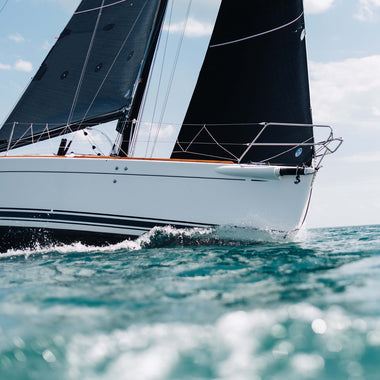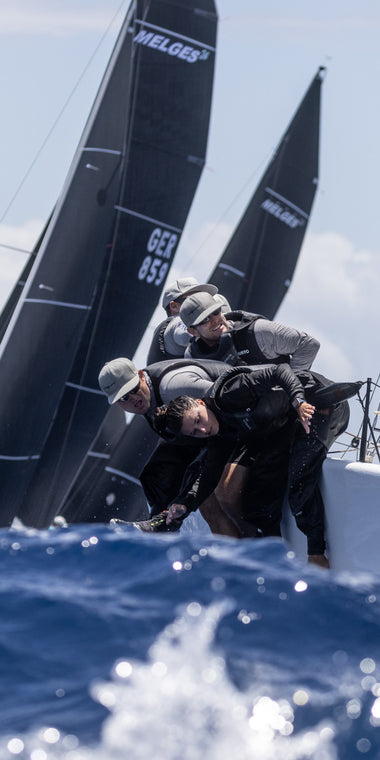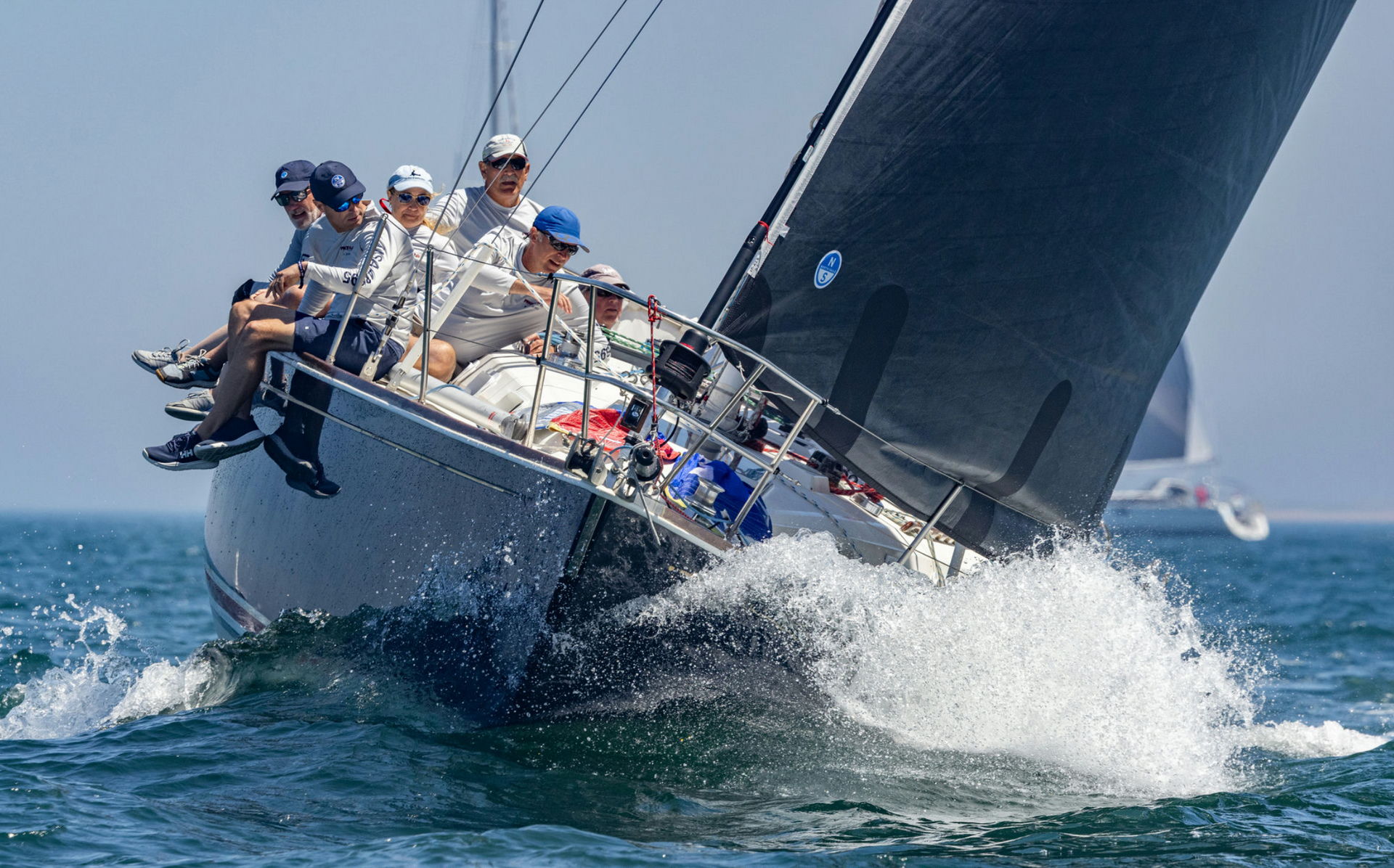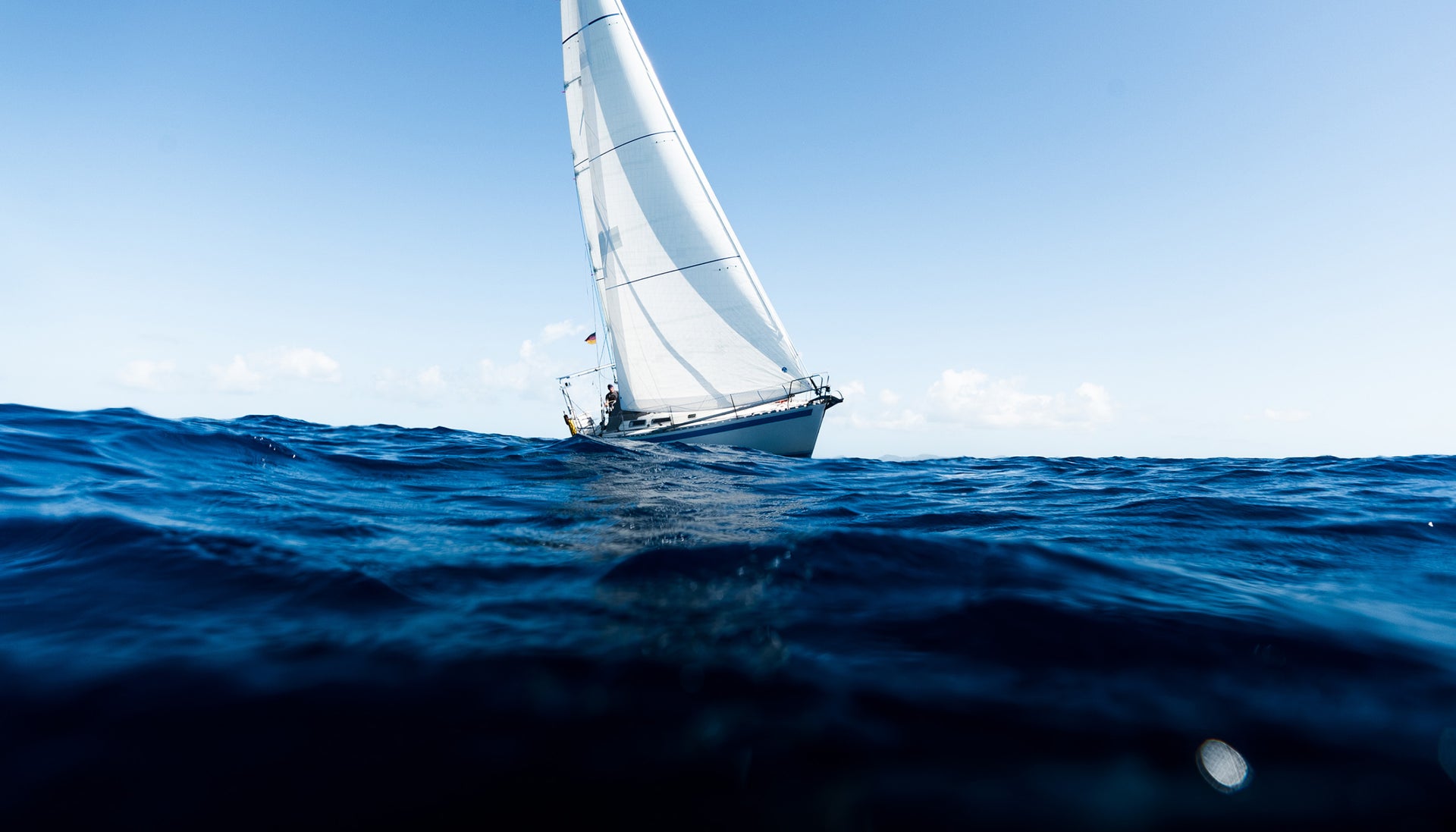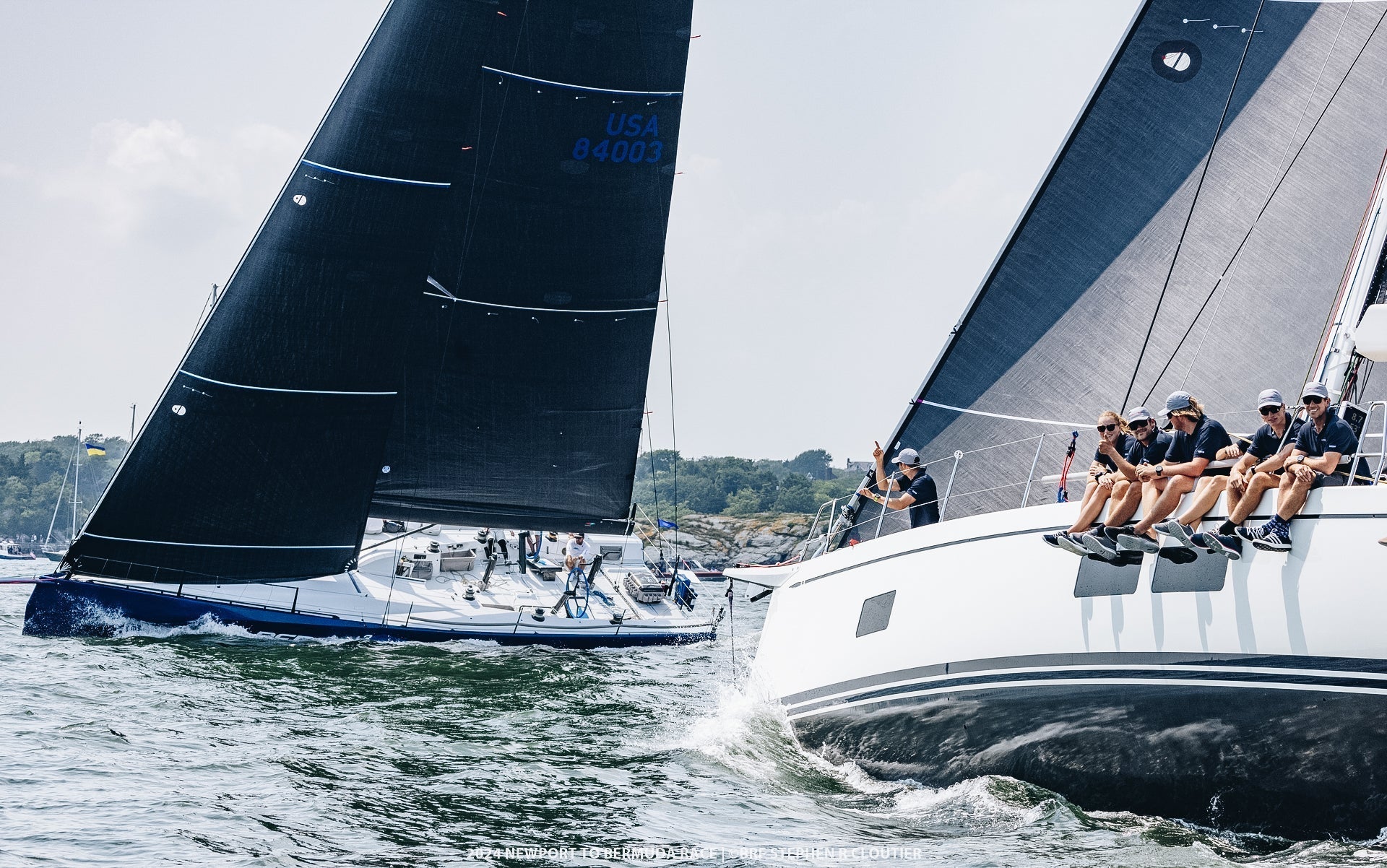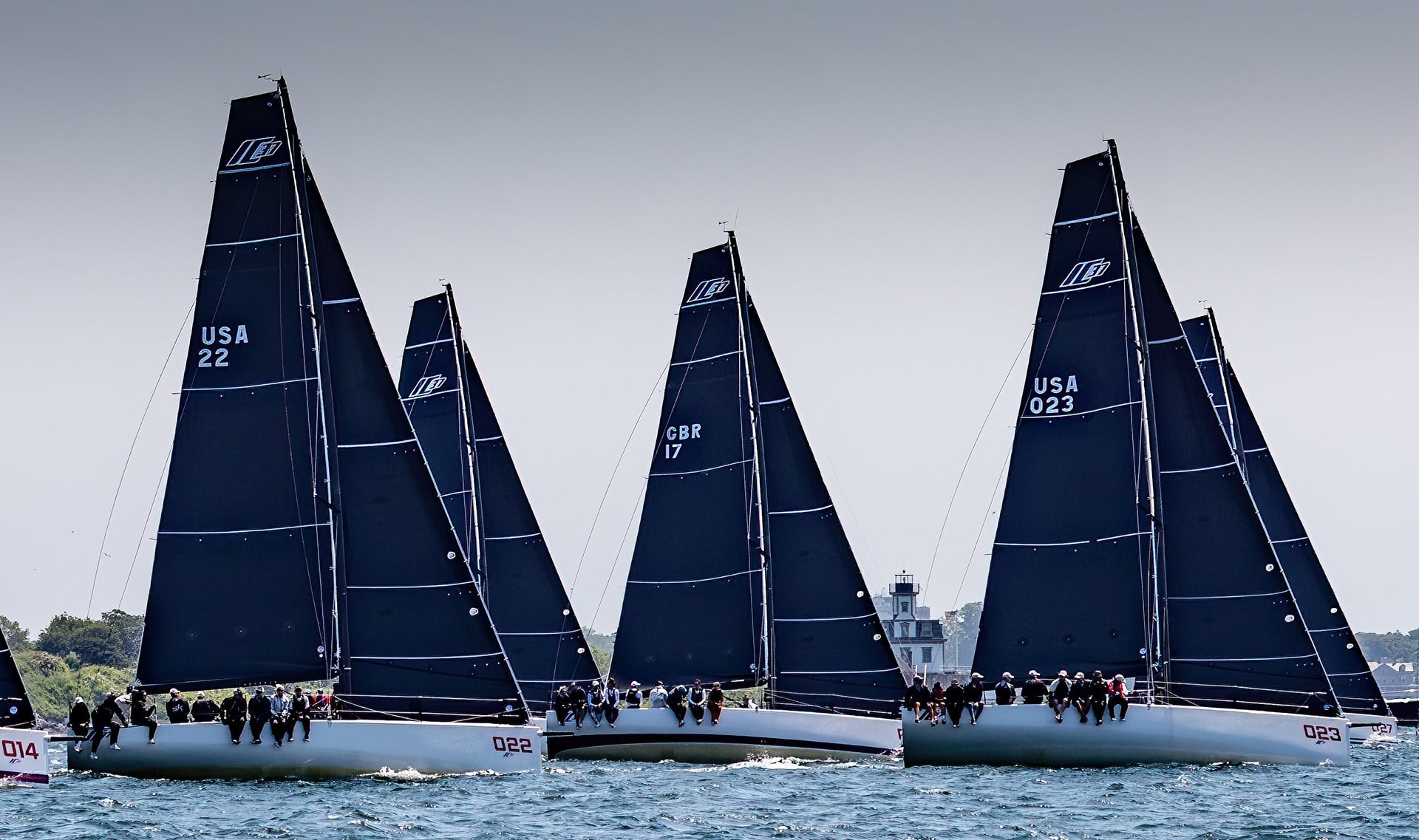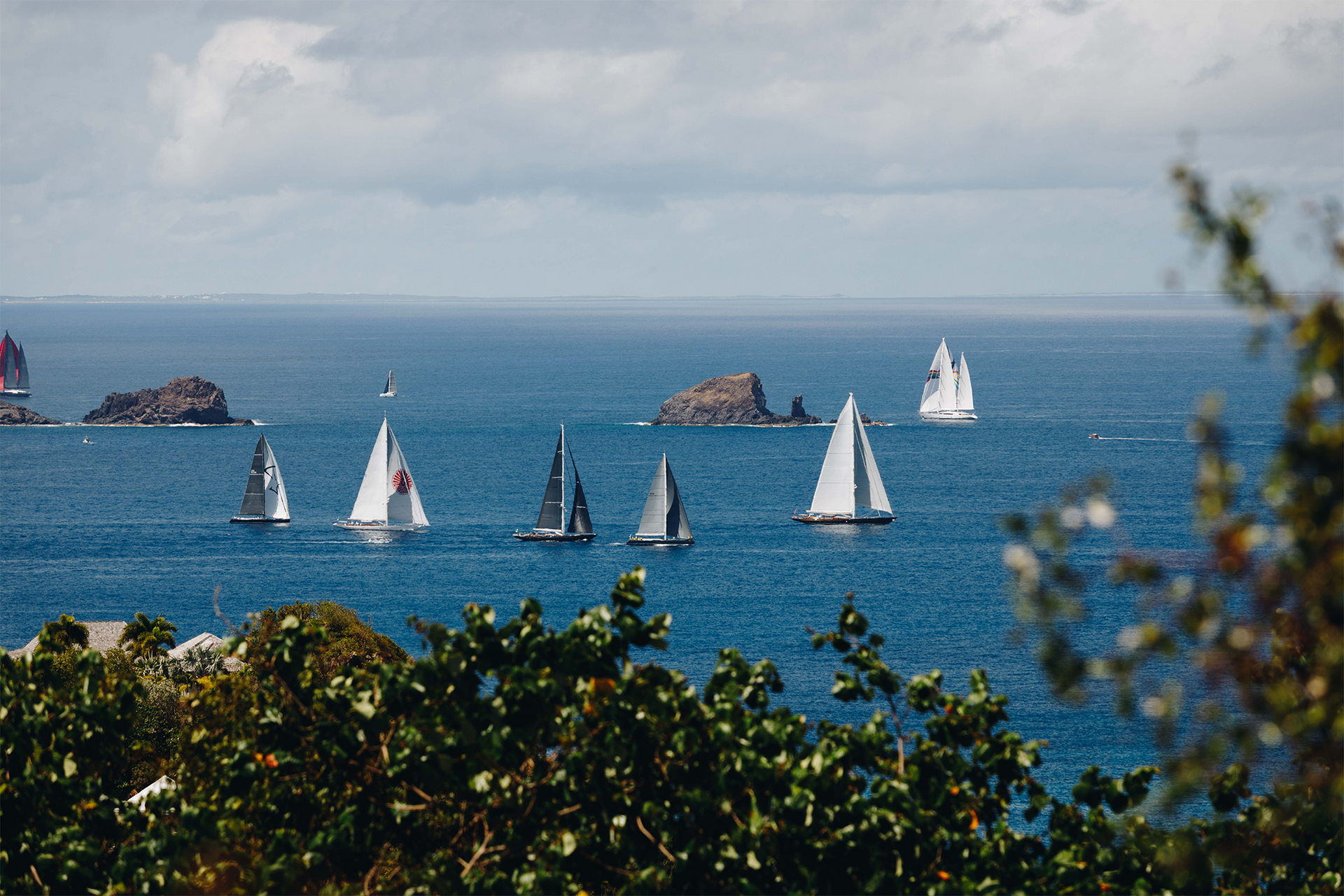LESSONS FROM BLOCK ISLAND RACE WEEK: HOW TO COME BACK STRONGER IN 2027
Insights from North Sails experts on preparation, teamwork, and mastering the local game at one of sailing's most iconic regattas.
Block Island Race Week (BIRW) has always been more than just a regatta. For many sailors, it's a rite of passage — a week that combines tight competition with the laid-back camaraderie of one of New England's sailing's great venues. The 60th edition proved once again why it's such a fixture on the calendar, delivering everything from light breezes to heavy air, swirling currents to postcard-perfect sunsets.
North Sails made a powerful impact at BIRW 2025, with 24 North Sails team members racing across multiple fleets and delivering full-service, overnight sail repairs to keep boats performing at their peak. The verdict? Outstanding racing and a hugely successful week.
For those already thinking ahead to the next edition in 2027, there's no better time to gather lessons learned. We spoke with a couple of North Sails experts fresh off the water to capture their thoughts on how to succeed at BIRW. Whether it's your first Block Island or your fifteenth, here's what they suggest to keep in mind.

📸 Stephen R Cloutier
PREPARATION IS (MORE THAN) HALF THE BATTLE
Nearly every one of our experts pointed to the same foundation for success: meticulous preparation long before the first start. A well-organized boat, a dialed-in rig, and the right sails ready to go can mean the difference between chasing problems all week or hitting the course focused and confident.
North Sails Expert Ron LaNeve (New Jersey), sailing on Peggy-O, summed it up best: "A well-prepared boat is the first ingredient to success. You cannot over-prepare for this regatta."
That means not just sails and rig tune but spare battens, backup gear, tools, and the small but essential checks — from batten tension to clean bottoms. Teams that had this sorted could turn their attention to sailing smart instead of scrambling for fixes at the dock.
Jack Orr, BIRW veteran and North Sails expert from the Connecticut loft knows the value of the pre-event prep, "The shore/delivery team did a great job having all the sails, battens, sheets, and gear ready to go for the event. So, there was no distraction from focusing on sailing. That pre-event readiness made a big difference for us overall."
BUILD A ROUTINE, TRUST THE TEAM, AND PACE YOURSELF
As every sailor knows, a week at Block Island demands more than just sharp boat handling. It's a mental and physical test, stretched over long days on the water and temptations ashore. The teams that thrive are the ones that establish routines early and trust everyone to play their part.
Jonathan Bartlett of North Sails Annapolis advises, "Don't underestimate crew chemistry. BIRW is a long stretch of teamwork – both on and off the boat." He lists it as one of the top three ingredients to success, alongside boat prep and setup. North winning crews found success in delegating — making sure each crew member owned specific tasks, from rig checks to sail changes, so nothing slipped through the cracks. North Sails expert of 25 years, Will Welles (Newport, RI), suggests, "Find a routine and stick to it. Delegate. The goal is to have everyone want to come back next time. That's winning." All of our experts agree that consistency breeds confidence.
Equally important was knowing how to manage energy. Seven days in the sun, salt, and breeze can take a toll on your body. Austin Powers, North Sail Annapolis, put it best, "Pace yourself — it's a long week. Energy management is crucial, considering the five days of racing. Also, try to improve each day. Don't let one bad day carry into the next."

📸 Stephen R Cloutier
MASTERING THE LOCAL GAME: CURRENT, CURRENT, CURRENT
Ask any North Sails team who raced this edition, and they will all tell you - there was one single tactical theme from this year: the impact of Block Island's notorious current. The combination of underwater geography and tides can make or break a race, and teams that did their homework often found themselves miles ahead.
Some relied on tools like Predict Current to get a sense of the bigger picture. However, even without tech, the water itself offered clues: lines of color, slicks, and eddies were there for the teams paying attention. "Always be looking to see what the current is doing. There were often lines on our course, and the water was different colors in some places. Figuring out which way it was going was key, especially for lay lines," explained North's Jeff Hayden, racing on Settler.
Jack Orr aboard Gemini II admitted that on their course, the current had a bigger effect than wind shifts. Jack Slattery added, "Knowing the current and shoreline geography makes a big difference on Block Island - especially in the Around Island Race." The lesson? All agree - keep your head out of the boat and never stop evaluating where the water's moving.

📸 Stephen R Cloutier
PRACTICE MAKES PODIUMS — BUT SO DOES ENJOYING THE RIDE
Another point all our experts agreed on is that pre-regatta practice sessions are a must. They suggest trying to cover as much as possible, including starts, tacks, sets, jibes, takedowns, and boat speed targets. Time spent dialing in techniques before race week often means fewer mistakes when it counts. Orr suggests that a Sunday practice day is a must and encourages reps with reaching sails. Hayden said explicitly, "We do a backdown and sail upwind for a couple of minutes before every start. This way, we can double-check settings and headings and make sure we're fast off the line." From clean starts to smooth sets and douses, eliminating unforced errors keeps boats in the hunt.
LOOKING AHEAD TO 2027
North Sails experts all agree, "With the right prep and the right attitude, Block Island is always fast — and should always be fun." It's never too early to start planning for the next one: build your team, sort your sail inventory, and lock in those critical logistics. With the proper prep, a learning mindset, and North Sails support, you'll be ready to race — and enjoy every moment — in 2027."
